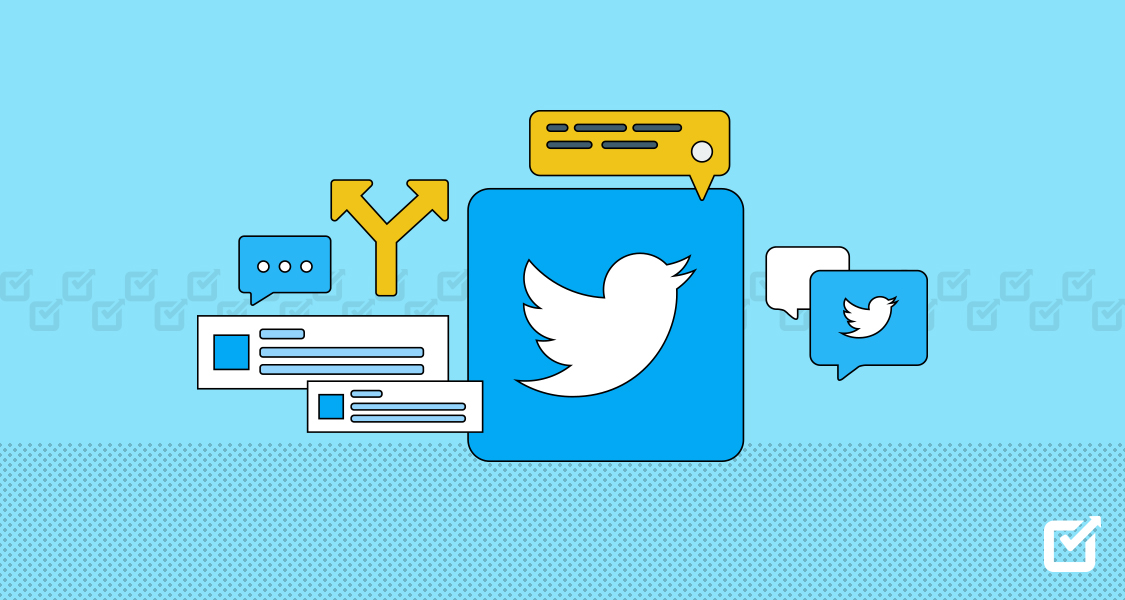Social media has changed from being just a fun place to chat and share photos to a must-have tool for businesses and individuals. With more people using the internet and social media every day, it’s very important to have a strong presence on social media.
Shopping on social media, or “e-commerce,” is expected to be important in 2024. More businesses are using social media apps to sell their products directly, making it easier for customers to shop without leaving the app. All of these strategies are a part of building strong social media growth for your brand, whether you’re a business selling products or an influencer seeking to build a personal brand.
Looking for ways to drive social media growth to your business?
This simple guide along with a good social media management tool – can help your business or personal brand not just survive, but succeed in the competitive online world.
So let’s get started!
What Is Social Media Growth?
Social media growth means making your presence stronger and bigger on different social media platforms like Instagram, Facebook, and Twitter. It’s about getting more followers, getting people to interact more with your posts, and bringing more people to your website or the stuff you post online. To do this well, you need a good plan and understanding of what your audience likes and how each social media platform works.
In 2024, growing on social media isn’t just about getting a lot of followers. It’s about having meaningful interactions and being real. People are more careful about who they follow, and the systems that run social media platforms are better at recognizing good content. So, any plan to grow on social media should focus on being genuine and building real relationships with your audience over a long time.
Managing Social Media Feels Like a Hassle?
Try Social Champ’s Social Media Scheduler and other AI tools and leverage automation to taste success on social media!
Social Media Growth Statistics
Here are some social media growth statistics:
- From January 2023 to January 2024, the number of social media users worldwide grew from 4.72 billion to 5.04 billion.
- This growth represents an increase of about 8% or 320 million people.
- Approximately 9% of the global population and 92.7% of all internet users are using social media.
- The average click-through rate (CTR) of ads across all social media platforms was 21% in 2022.
- About 77% of businesses use social media to reach their customers.
- 90% of social media users follow at least one business on their preferred platform.
Related Article: Social Media for Business: Reshape Your Marketing Strategies in 2025
10 Effective Social Media Growth Strategy
Here are 10 effective social media growth strategies to help you make the most of your online presence:
Be Active on Your Target Audience’s Favorite Platforms
You can create as many social accounts as you like. But your audience will only connect with you on the social networks they’re already actively using. You need to put your brand where they can find you easily, rather than expecting them to seek you out.
There are two components to this strategy:
- Your target audience
- The most popular social media platforms within that user base
For organic social media growth, you need to understand both. If you don’t already know exactly who your target audience is, this is where you need to start. Once you understand your target audience, you can get even more detailed by creating audience personas.
Now that you understand who you want to connect with on social media, you can figure out where to find them. Finding the demographics of the major social platforms is a good place to start your research. You should also do some testing to confirm any assumptions.
Keep in mind that different segments of your audience may be active on different social media sites. Or, people might follow you on multiple platforms but expect a different relationship on each. That means you need to optimize your content for each platform.
Create a Consistent Posting Schedule

Posting schedule Humans are creatures of habit. When you post social content on a consistent schedule, your audience knows what to expect. They understand how often to expect new content, and when to anticipate your posts in their social feeds.
This consistency makes it feel less burdensome for new people who find your content through a search or suggestion to click the follow button. Conversely, it encourages fans to seek out your new content on your profile if the algorithm doesn’t serve it up in their feed.
Just like deciding where to post based on your audience’s preferences, you need to let their social activity guide your plan for when to post too.
Posting when your audience is most likely to be on the platform increases your chances for early engagement, which is a key value signal to virtually all social algorithms. For it you can also use a social media scheduler tool that makes posting and managing across different social media channels a lot easier and hassle-free.
Post Short Video

Short social videos (Reels and TikToks) have become a crucial component of social growth. Creating this type of content is the easiest way to achieve social media follower growth. Why? Because it’s the content that’s most likely to reach people who don’t already follow you.
Instagram specifically says that for Reels, “the majority of what you see is from accounts you don’t follow.” Likewise, Facebook describes Reels as, “content you may be interested in from creators you may not follow.” TikTok is designed to surface content a user will find interesting, not just content from accounts they follow.
Your short video content needs to align with your overall social strategy and your brand voice. But, it’s a completely different kind of content than you’re creating for feed posts or even Stories.
To get started, check out our guide to making effective short-form videos.
For platform-specific strategies, take a look at:
o How to use Instagram Reels for business
o How to use Facebook Reels for Social Media Growth
o How to create a TikTok marketing strategy
Use SEO for Social Media
 We’ve mentioned algorithms a few times already. But when you’re focused on social media follower growth, social search engine optimization may be even more important.
We’ve mentioned algorithms a few times already. But when you’re focused on social media follower growth, social search engine optimization may be even more important.Social SEO is all about optimizing your content using SEO tactics like keyword research, captions, and effective alt text to help the search features built into each social platform understand what your content is about.
That means people who are actively searching for content like yours are more likely to find you
And there’s a bonus, TikTok search results are indexed by search engines, so you can drive new eyeballs to your social content from people who are starting their search outside of social media.
Engage With Your Audience

Remember that social media is not a simple broadcast platform. Your audience wants to see your content, sure. But they also want to interact with you, the brand (or creator) behind the content.
If you want to grow your social media presence, you need to be diligent about responding to comments, tags, messages and mentions. This isn’t optional, folks! Neglected audiences don’t stick around, so leaving your comments and messages unanswered works directly against your efforts for social media growth.
The easiest way to stay on top of your social engagement is to manage all your incoming messages and comments from a centralized social inbox.
Get Inspired by Established Accounts in Your Niche
We talked about audience engagement above, but it’s also important to conduct industry research. In this case, you’re looking for accounts that are already performing well in your space.
They might be competitors. But they might also be potential collaborators. Either way, studying their accounts can give you a good sense of what’s already working in your niche.
Beyond strategy insights, you can also work on social media growth by engaging with popular accounts that already reach your target audience. If they’re not in direct competition with you, try liking and commenting on their posts in a genuine and supportive way. Catching their attention might lead to a return like or follow.
Connections between accounts are a powerful signal for social media algorithms, so connecting with relevant accounts can help your chances of appearing as a suggested post for non-followers.
Work With Content Creators

This is another important strategy to expand your audience. In this case, you develop a collaboration with relevant content creators to attract their established audience.When your focus is social media growth, it’s important to choose your creator collaborators carefully. Their audience needs to be a really good match to the audience you are trying to build. After all, a new influx of followers is only helpful to your overall growth strategy if they want to stick around.
Again, hashtag and keyword searches are a good starting point. It’s also a good idea to take a look at what other accounts your existing audience follows to look for a good fit. We’ve put together a whole guide on how to work with content creators to take you from there.
Maximize Your Profile and Bio

A snapshot of Instagram Sure, creating content is the most exciting part of social media. However, developing a strong bio and profile is critical to social media growth. Make sure you have these nailed down before you start putting too much effort into other growth strategies.
There are a couple of reasons for this. First up, your profile and bio tell potential new followers who you are, what you’re all about, and why they should follow you.
Second, your profile and bio are full of opportunities to guide people to your account in the first place. Most fields in social media profiles are searchable and may be indexed in regular search engines as well as in social search results.
And, finally, your profile offers chances to direct people to your profile through the connective tissues of social platforms, like hashtags and geotags. Address information helps the algorithms connect your content with people in your local area.
Develop a Strong Brand Identity

A snapshot of Instagram Have we said enough times already that consistency is key in growing your social media presence? Well, we’ll say it again here, because that applies to your brand identity as much as your posting schedule.
We just talked about how your profile can bring in people from outside of the social platforms. If they scroll down and see consistent content in your grid, it’s much easier for them to understand what you’re all about and why they should care.
It’s also important that your content is easily identifiable when it lands in people’s feeds. It’s easier for followers to spot your posts among all the sponsored and suggested content when you deliver a consistent look and feel that supports your brand identity.
Experiment With Social Ads

While the strategies for organic social media growth covered so far are critical to growing a strong social media presence over time, social ads can be a way to get your content in front of a new audience quickly and boost your growth rate.
Most social platforms allow you to choose growth-oriented goals for your social ads. Look for ads goals like awareness, engagement, and consideration to drive growth with your social ad campaign.
Planning a social ads campaign may seem daunting, but it’s easy to get started. The simplest method is to put some budget behind organic posts that are already performing well for your desired growth goals.
Featured Article: How to Grow Your Business With Facebook Messenger Ads in 2025
Top 5 Social Media Growth Tools for 2024
Here are some social media growth tools that have become extremely popular in 2024.
Social Champ

Social Champ Social Champ has become a top tool for managing social media in 2024. It has many features that help businesses improve their social media.You can use it to plan your posts ahead of time, which ensures you always have something to share. It also has a feature that helps you understand how well your posts are doing on different platforms. This information can help you make changes to get better results. Plus, it allows you to see what your competitors are doing on social media, which can help you plan your own strategies.
- Buffer

Buffer Buffer is another tool that people who love social media often use. It has a user-friendly design that makes it easy to schedule posts on various platforms. It also has strong analytics, which let you see how well your posts are doing and find out what type of content your audience likes the most. Buffer even has features that allow several people to manage accounts safely.
Hootsuite

Hootsuite Hootsuite is a powerful tool that lets you manage multiple social media accounts from one place. You can use it to schedule posts, keep track of mentions, and follow hashtags, which helps you stay updated with your social media activities. It also provides detailed reports that help you understand your audience better and plan your content accordingly.
Sprout Social

Sprout Social Sprout Social is known for its detailed analytics and CRM (Customer Relationship Management) features. It gives you detailed reports that include information about your audience, which can help you create more effective content. It also lets you manage customer relationships directly from the platform, making it a great tool for customer service and engagement.
Canva

Canva While Canva is not a traditional social media management tool, it’s very useful when it comes to creating attractive graphics for social media. It has a library full of templates, fonts, and images, making it easy to design even if you’re not an expert. Creating beautiful content with Canva can help increase your engagement on social media.
Each of these tools has unique features, and the best one for your business will depend on what you need and want to achieve. Using these tools can make managing social media easier, provide helpful insights, and help your online growth in 2024 and beyond.
Take Away
If you want social media growth, you need to understand how platforms change and grow. This guide and the answers to these common questions should help you with this. Each social media site is different and has its own special features. Using the right tools can make managing your social media easier. Remember, to grow on social media, you need a good plan and regular posts, and you need to keep up with what’s new. So keep trying new things and improving your plan for the best results.



 We’ve mentioned algorithms a few times already. But when you’re focused on social media follower growth, social search engine optimization may be even more important.
We’ve mentioned algorithms a few times already. But when you’re focused on social media follower growth, social search engine optimization may be even more important.


















